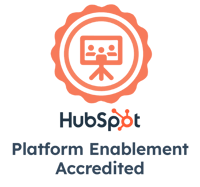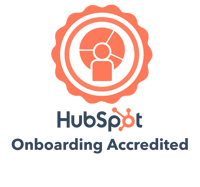Ever wonder exactly how Google analyzes every website and ranks it?
The exact details will always be a mystery because Google protects the inner workings of their search algorithms like KFC protects its secret recipe of herbs & spices...but...
As a speaker for Google for the past six years, I have picked up some insights into factors Google considers when ranking sites. There are 5 core factors that are publicly known:
- Meaning of your query
- Quality of content
- Relevance of webpages
- Usability of webpages
- Context and settings
Let's dig into each of these metrics - what they mean, how they are analyzed, and how you can make sure your website and content pass muster.
The Metrics Google Uses to Rank Websites:
1. Meaning of Your Query
What it is: Google trying to understand what a user is searching for
How it works:
One of the main issues Google needs to allow for in search is that human beings don't always type perfectly or use exactly the right terms when searching. This can be as simple as a spelling error or as complex as trying to understand the what and why of a search query. Google analyzes the entire context of a search to truly understand it, not just the words that appear in that search.
Take for example these wildly different searches using the same root word:

Image via Google
In order to correctly answer these queries, Google needs to understand the intent of these searches. It can be incredibly complex to ensure searches are useful for the end user.
What websites can do:
Knowing that Google is trying to match the user with their intended search means a few things for websites:
- Optimize for intent when creating content - consider the whys and hows behind your content
- Be specific and insightful with your topics - know what your page/blog is intended to answer
- Base your content around what users are searching for - not around short keywords
The big thing here is that keywords matter less than search intent. If you're writing a piece of content, hyper-focusing on a specific phrase and trying to write your content with the intent of ranking for that term isn't going to help you rank. As a best practice, write content under core topics that address search intent.
Here are the most common types of search intent that drive searches:
- Informational intent searches are based on gathering information, both basic and complex. It could be information on the weather, how to grow vegetables, or SEO tips (like this blog!). In this type of search, people have a specific question or want to know more about a certain topic.
- Navigational intent searches drive searchers to a specific website. For example, searching "Facebook" into Google to try and get to Facebook. Generally speaking, you will rank high for your business' name by default on navigational search.
- Transactional intent searches focus on retail or eCommerce. These are searches with the intent to buy a specific product, like "rhinestone shades" or "cheap sunglasses."
- Commercial intent searches drive to future purchases. Searchers know they need a pricey item in the near future and want to research online before making a decision (which is what most of our B2B customer websites are built around). This could be a washing machine, car, a business service, etc. Think of this as a combination of informational and transactional intent.
- Keyword intent are searches that use specific words that clue you into their intent. Things like "buy, deal, discount" let you know that they want to purchase. Things like "how to, best way to" let you know they want information. This type of intent usually overlaps with one of the other four intents.
→Read Now: Why Search Intent Optimization is as Important as SEO
Your inclination might be to aim for keyword intent, but a vast majority of your content should be written for informational intent. This represents the vast majority of searches, and is more likely to yield visitors back to your site when you provide high-value content that answers these informational searches they're undertaking.
2. Quality of Content
What it is: Google deciding if your content is trustworthy and reliable
How it works:
Google's ultimate goal is to best answer a search query. That means that the content on a page needs to not just address the question, but actually answer it.
Functionally, what this means is that you can't just stuff your page full of keywords and expect it to rank.
Google doesn't precisely define what they use to identify "quality," but we do know it generally looks for clearly-written, reliable content from websites. It also includes sites that are linked to from other reputable websites and aggregated search feedback.
What websites can do:
The best way to create quality content is to write for people, not search engines. This means instead of trying to stuff more keywords into your pages, focus on writing content that is easy to read, consistent, and speaks to the topic of the page.
→Read Now: Why You Should Use Topics, Not Keywords
You might be thinking "this sounds a lot like the previous section" and the two are closely tied together. The difference is the semantics of your content - the words themselves. Are they clear? Do they explain what the topic of the blog is? Do they sound like they're written by a person fluent in that language, or is it obviously AI-generated content?
3. Relevance of Webpages
What it is: Google figuring out what a specific page is about
How it works:
In order to match search queries with answers, Google needs a database of those answers - which come in the form of website pages across the web. It's a lot of information to sift through, so it's important that Google can understand what a page is about and what questions it answers.
What websites can do:
Often when people talk about search intent optimization (SIO), this is what they focus on - the actual optimization of your page for search engines. The truth is that this is just one step of SEO, but it's still an important one. We call this on-page SEO, and it includes things like:
- Making sure your page has a title that matches the content of the actual page
- Ensuring the URL is reflective of the content on the page
- A meta description that describes the page
- Alt tags behind all images that include relevant keywords
- Subheadings on the page
- Internal and external links that offer context and keywords
→Read Now: On-Page SEO Steps [Free Checklist]
This is something you always need for every page on your website. It's the first thing Google considers when ranking your pages - and if your website doesn't have the right contextual cues, it doesn't matter how well you hit the rest of the items on this list.
Another factor to consider are internal and external links. Ensure that every link has a clear description of what it is - instead of "click here," it should describe the actual destination of that link:
Instead of this: To learn more about SEO, click here. Content is important for SEO - learn more here.
DO THIS: SEO is the process of structuring your content and website with the goal of ranking high in search results for relevant searches.
4. Usability of Webpages
What it is: Google recognizes that your site is functional to modern standards
How it works:
Another important factor Google considers is the website itself - does it show up correctly in multiple browsers? Is it mobile responsive? Does it load in a reasonable time?
Google doesn't want to send users to non-functional or dangerous websites.
What websites can do:
This one's pretty short because it's essentially just following a checklist. This is an area that Google provides ample data on how they measure and what you need to do to make sure your site is up to snuff. Both PageSpeed Insights and Webpagetest.org are free resources you can use to analyze your site.
→Read Now: 6 Steps to Audit Your Website (And Why You Should Do It)
5. Context and Settings
What it is: Google uses the searcher's settings to deliver the most relevant content
How it works:
Because Google is such a powerhouse online, users have more options than ever before to customize their experience. This includes information such as:
- Location
- Past search history (on Google and YouTube)
- Search settings
- Integrated apps
Google uses this information to deliver more specific results. For example, someone in Minnesota searching "florist near me" will get drastically different search results than someone searching in London.
What websites can do:
This is an area where website owners have the least influence, but there are still ways to give your content the best shot at ranking. First, you should ensure that your site is up-to-date with location(s), services offered, and industries served. Next, you can use Google-adjacent tools like their Business Profiles or Map features to create a profile to provide the most accurate information about your business.
→Read Now: What is Google My Business?
The other way to influence this is by sprinkling relevant information throughout your site. Not keyword stuffing, but things like making sure your address is your website's footer and includes your state, zip code and/or country. When creating content, be as specific as possible for your audience - and mention location, demographics and user behavior if it's relevant to the topic of the page.
Key Takeaways: You Need a Search Intent Optimization Strategy
Google's insights offer one large takeaway: you need to have a strategy for your SEO. SEO is a slow and steady process and doing the heavy lifting to figure out what keywords work for you before building your strategy will help you maximize results.
From there, you need to have a sound strategy for creating valuable, reliable content and a plan to keep your site up-to-date.
Free Guide: Beginner's Guide to Digital Marketing
This in-depth covers everything you need to know to get started with effective digital marketing
What exactly digital marketing is and how it works.
Explore a step-by-step process for running an digital marketing campaign in today’s competitive business landscape.
Best practices for your digital marketing strategy
We walk through how to implement a strategy using digital marketing, email, SEO, social media and online advertising.
How to measure the impact and ROI of your strategy
Make insights-driven business decisions and confidently present the value and impact of marketing efforts in support of top-level business objectives.
BizzyWeb is a Minneapolis-based digital marketing and web design agency that helps companies get the high-quality leads they need to grow and thrive. Our tactics include inbound marketing, SEO, advertising, web design, content creation and sales automation. We are an accredited HubSpot Platinum Partner and we offer full-service HubSpot onboarding, enablement and strategy for new and current users.






